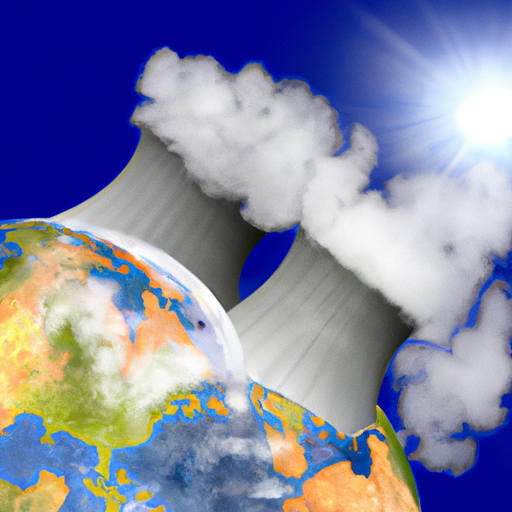Nuclear Energy: A Sustainable Solution for Climate Change?
The debate surrounding climate change and the varying strategies being employed to tackle it is a central issue of our time. One potential solution, already polarizing opinions, is nuclear energy. Known for its immensely powerful capabilities, nuclear energy also comes with its own set of potential risks and challenges. This article aims to provide an unbiased examination of nuclear energy in the context of climate change. We will talk about its environmental impact, potential benefits, potential dangers, waste generation, disposal concerns, risk of nuclear accidents, economic feasibility, and societal acceptance. In each section, we will use credible sources and provide complete references to substantiate our discussion.
Environmental Impact of Nuclear Energy
One of the principal benefits of nuclear energy is its low carbon footprint. According to a report published by the World Nuclear Association (2021), nuclear power releases less greenhouse gas emissions per unit of energy than any other mainstream source of power.
Benefits of Nuclear Energy
Nuclear power generation is highly efficient, capable of producing a large amount of energy from a small amount of fuel. When compared to fossil fuels, nuclear power requires less raw material and produces far fewer emissions (World Nuclear Association, 2021).
Drawbacks and Risks of Nuclear Energy
Despite the advantages, there are numerous inherent risks and challenges associated with nuclear power. A primary concern is the management of nuclear waste, which remains dangerous for hundreds of years. Moreover, the potential of nuclear accidents, albeit rare, can result in devastating environmental and human health consequences.
Nuclear Waste and Disposal Challenges
The International Atomic Energy Agency (IAEA, 2018) states that the prominent issue of nuclear power is its waste. Nuclear waste remains hazardous for a long time and requires complex disposal solutions.
Feasibility of Replacing Non-renewable & Carbon-intensive Energy Sources
It is undeniable that there is potential for nuclear energy to replace non-renewable, carbon-intensive energy sources. However, the feasibility of such a shift requires extensive examination including understanding public and political acceptance, the regulatory environment, resource availability, and grid requirements.
Societal Acceptance Versus Resistance
Society's view on nuclear energy is divided. While some see it as a clean alternative to fossil fuels, others express concerns about waste disposal, weapon proliferation, and accident scenarios. In many nations, public protests have seriously restrained the growth of nuclear power.
Economic Viability and Innovations
The economics of nuclear power are complex. While nuclear plants are expensive to build, they are comparatively cheap to run. Technological advances can potentially reduce costs and risks and increase efficiency and waste management capabilities. However, the costs associated with waste disposal and plant decommissioning cannot be overlooked.
Conclusion
The question of whether nuclear energy is a sustainable solution to climate change is not easily answered. It carries potential for significant benefits, but also poses significant risks and challenges that cannot be overlooked. It remains a subject for reasoned debate and ongoing investigation.


















Comments
Leave a Comment